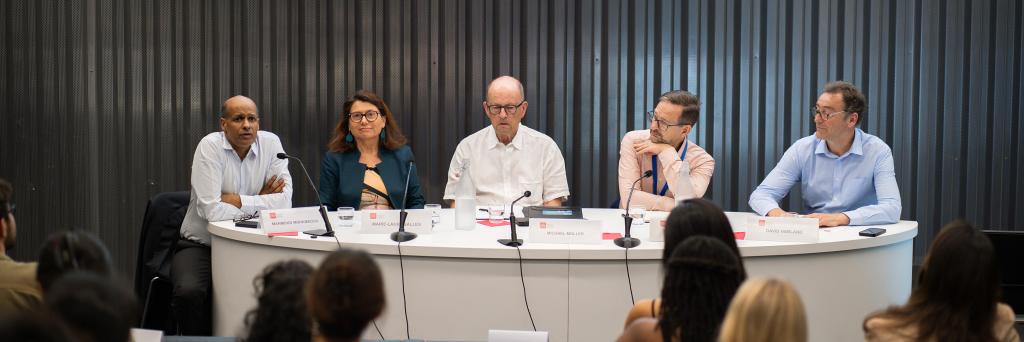The discussion brought together the different diplomatic perspectives and experiences of the speakers, and together, they gave students an invaluable opportunity to consider the unprecedented challenges of diplomacy in a changing world.
David Harland set the tone for the discussion by opening with a quotation from Italian philosopher Antonio Gramsci: “The old world is dying and the new world struggles to be born. Now is the time of monsters.” Gramsci wrote the famous words in the interwar period in 1929, but Harland aptly applied it to the current state of diplomacy. Traditional diplomacy, he established, is incapable of addressing the problems the contemporary world is facing: “we have forgotten to do what we used to know how to do well.”
Michael Møller presented a more optimistic view of the world: humanity has never been as well off as it is today. Though diplomacy is no longer what it was, Møller argued that the present state of affairs is a time of transition, not a breakdown. Calling the students to action, he equally emphasised that in the face of this transition and the loss of power of traditional systems, it is important that every single person must embrace their individual responsibility to enact change in the world.
Thomas Greminger, for his part, focused on the polarisation of affairs, where states’ preferences for classical diplomacy has led to a paralysis of multilateral institutions. As he and his co-panelists established, those multilateral institutions are the ones who can still make an effective difference on the international scene while public diplomacy is struggling, and thus it is crucial that international actors use both discourse and multilateral institutions to overcome stagnation.
Drawing from her background in education, Marie-Laure Salles insisted on the need for collaboration, not competition, and introduced the idea that a “mobilisation of emotions” is necessary to sustain a collaborative drive. While sustainability and technology are important new themes that future diplomats need to dive in, mental health should also be on our radar: the epidemic of loneliness that the world is facing, as well as the associated growing tendencies towards separation and polarisation all have serious impacts not just on individual but collective levels on the global scene. She emphasised the need for new diplomats to have five important inner qualities that will equip them to face the changing future: courage, integrity, empathy and care, hope, and trust.
Together, the four speakers along with Mohamed Mahmoud Mohamedou agreed that changing not only the mindset of the global scene, but its very language is important to meet current and future demands.


